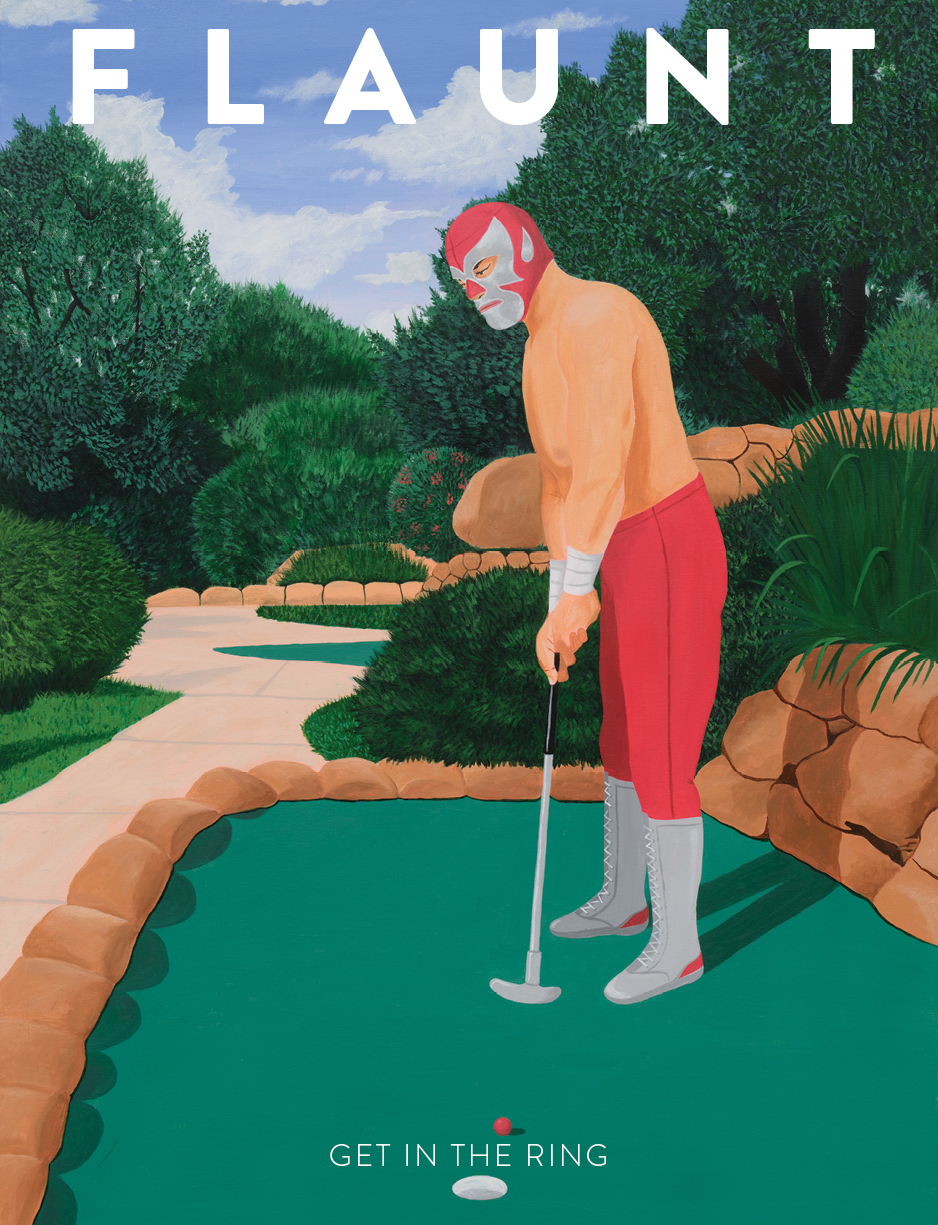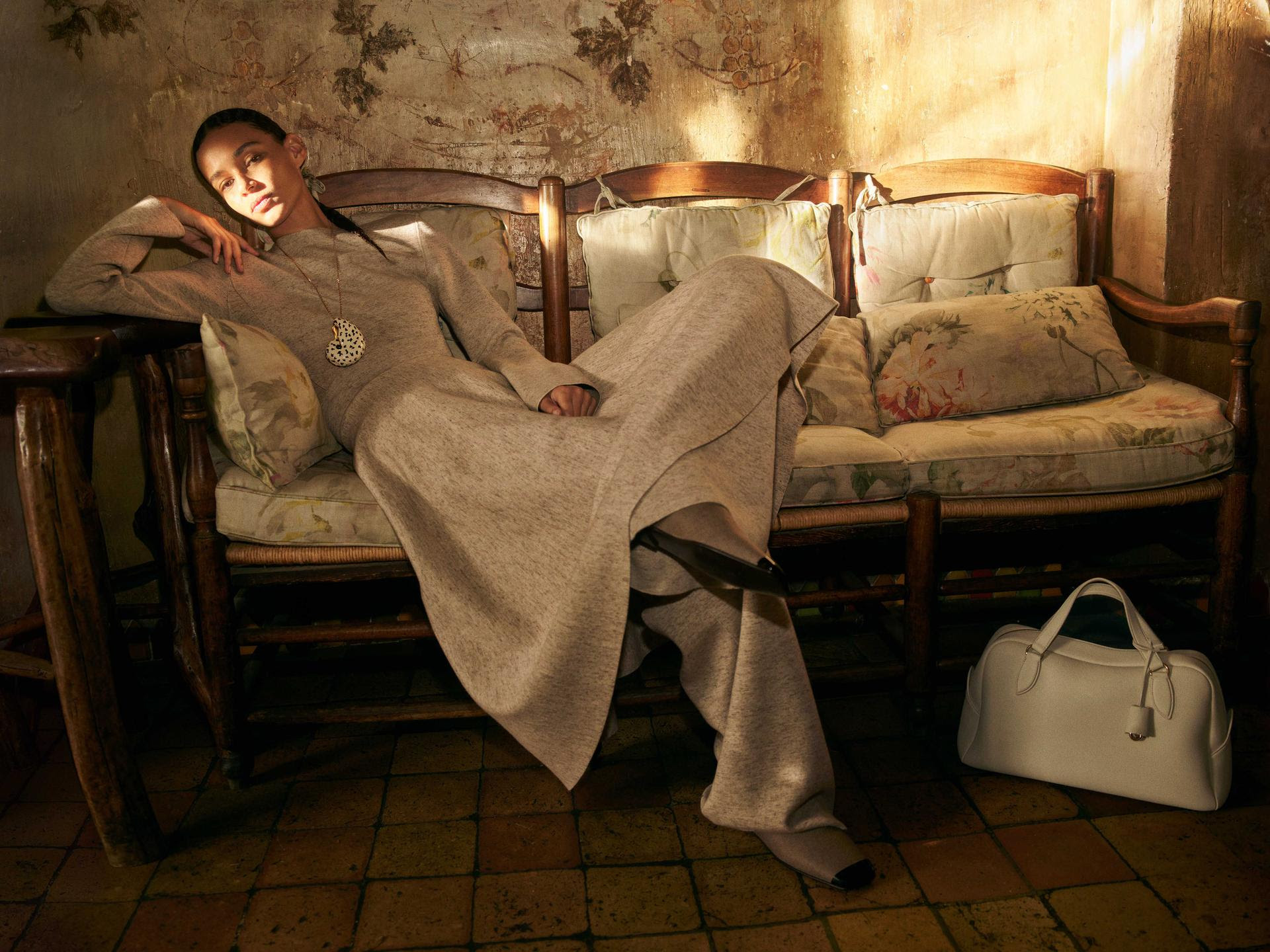

There’s the retro vision of the American Dream that’s all televisual picket fences, two nuclear-powered kids, and a big blue Chrysler. And there’s the modern make-it-rich-on-reality-TV version, all chintz and cheese. This February, Vietnam, the Brooklyn-based rock outfit, released their take on the topic, with the sprawling, cinematic album _An American Dream_.
Like their self-titled debut_—_which served as a harder rocking counterpoint to freak folk’s MySpace-era heyday—the new album is full of dirty blues rhythms and good ol’ Americana. But there’s also something else happening underneath, an eerie sound inflected by the likes of German prog pioneer Klaus Schulze, the unclassifiable Bahamian musician Exuma, Hawaiian guitars, and a certain type of all-American discontent.
“I have the idea of the ghosts from the past, coming in through the dreamscape,” singer Michael Gerner says as he sits on the floor of the band’s practice space.
A good place to start would be by telling you about who’s in the band and what they do, but the truth is, I’m not even totally sure. (“Whoever wants to practice,” Gerner says.) In its current incarnation, Vietnam is a six-piece, with Chistopher Anderson (violin), Michael Foss (drums), Christian Havins (Moog), Nathanael “Lefty” Maynard (guitar), and Clint Newsom (bass) backing up Gerner. Open the record’s gatefold, though, and there’s a long cast of people who contributed to the record, each of them pictured in a surreal, funhouse-style collage. At the center of it all is Gerner, a songwriter as mysterious and anachronistic as the music he makes.
The first time we meet, it’s at a Brooklyn apartment for this story’s photo shoot. When I arrive, Michael is outside smoking a cigarette; he’s in a dark three-piece suit, and his face is totally enveloped in black hair flecked with gray. Inside, the guys are drinking whiskey and P.B.R. and playing records. Cream is on the turntable. In the middle of the room, the photographer has set up a makeshift studio, lit by a paper IKEA floor lamp; his roommate sits tapping away at a computer nearby.
The plan was for the band to pose barefoot and in white suits, but they’re not really buying that. Instead, they pick up the flowers the photographer has laid out, tuck them into their lapels, and sit rather stoically and stare at the camera. Everyone debates whether a beer can should be left in the picture, the vote is no, and someone picks up a cat that wanders by instead. I try to play it cool, but within 20 minutes my allergic, asthmatic lungs have closed up, cutting the interview short.
We reschedule to meet at the band’s practice space the following week, after Michel takes a weekend trip to Philadelphia. Now it’s about 17 degrees outside and not much warmer inside as Gerner walks me through a purple door and into the small room that serves at the band’s practice space and his crash pad. We gather around a space heater with a glowing picture of a hearth; a giant painting of Jesus looms over us. Today, Gerner’s beard is gone, though he’s still wearing the wilted carnations from last week’s shoot. There’s a can of Barbarsol on a bookshelf nearby. He sits on the floor and drinks red wine as I offer the other guys—today it’s just Lefty and Chris—some tallboys of Coors Light.
They tell me how the album came together when Gerner returned to New York after a dark stint in Los Angeles. (He bounces around a lot, and right now he’s trying to get the rest of the band to move to West Philly or Morocco.) He won’t give many specifics about his stay, but while in California, Gerner recorded a bunch of songs and sent them to Lefty. Almost all of them appear on the record in some form.
“I think so,” Gerner says, when I ask him if her can hear Los Angeles in the songs. “Like in the bleakness of it all. It’s like real, expansive and real empty, with sunshine and like these pop-up palm trees.”
Vietnam’s _American Dream_ may be more like a PTSD flashback filled with multiple appearances by the devil. But even then, it ends on a bright note, a song called. “I Promise… Things Are Going to Get Better.” “The next record, it will be all love. The romantic record in Morocco,” Gerner says, as the guys all laugh. “You kind of have to push through the darkness to get there.”
As we walk towards the door and back into the cold, I ask if there’s anything Gerner wants people to know about the record. He thinks for a minute and then says he wishes people would take the time to listen to it all at once. “Really,” he says, “it’s just one song.”
* * *
Written by: Heather Corcoran
Photographed by: Joachim Johnson
 
There’s the retro vision of the American Dream that’s all televisual picket fences, two nuclear-powered kids, and a big blue Chrysler. And there’s the modern make-it-rich-on-reality-TV version, all chintz and cheese. This February, Vietnam, the Brooklyn-based rock outfit, released their take on the topic, with the sprawling, cinematic album _An American Dream_.
Like their self-titled debut_—_which served as a harder rocking counterpoint to freak folk’s MySpace-era heyday—the new album is full of dirty blues rhythms and good ol’ Americana. But there’s also something else happening underneath, an eerie sound inflected by the likes of German prog pioneer Klaus Schulze, the unclassifiable Bahamian musician Exuma, Hawaiian guitars, and a certain type of all-American discontent.
“I have the idea of the ghosts from the past, coming in through the dreamscape,” singer Michael Gerner says as he sits on the floor of the band’s practice space.
A good place to start would be by telling you about who’s in the band and what they do, but the truth is, I’m not even totally sure. (“Whoever wants to practice,” Gerner says.) In its current incarnation, Vietnam is a six-piece, with Chistopher Anderson (violin), Michael Foss (drums), Christian Havins (Moog), Nathanael “Lefty” Maynard (guitar), and Clint Newsom (bass) backing up Gerner. Open the record’s gatefold, though, and there’s a long cast of people who contributed to the record, each of them pictured in a surreal, funhouse-style collage. At the center of it all is Gerner, a songwriter as mysterious and anachronistic as the music he makes.
The first time we meet, it’s at a Brooklyn apartment for this story’s photo shoot. When I arrive, Michael is outside smoking a cigarette; he’s in a dark three-piece suit, and his face is totally enveloped in black hair flecked with gray. Inside, the guys are drinking whiskey and P.B.R. and playing records. Cream is on the turntable. In the middle of the room, the photographer has set up a makeshift studio, lit by a paper IKEA floor lamp; his roommate sits tapping away at a computer nearby.
The plan was for the band to pose barefoot and in white suits, but they’re not really buying that. Instead, they pick up the flowers the photographer has laid out, tuck them into their lapels, and sit rather stoically and stare at the camera. Everyone debates whether a beer can should be left in the picture, the vote is no, and someone picks up a cat that wanders by instead. I try to play it cool, but within 20 minutes my allergic, asthmatic lungs have closed up, cutting the interview short.
We reschedule to meet at the band’s practice space the following week, after Michel takes a weekend trip to Philadelphia. Now it’s about 17 degrees outside and not much warmer inside as Gerner walks me through a purple door and into the small room that serves at the band’s practice space and his crash pad. We gather around a space heater with a glowing picture of a hearth; a giant painting of Jesus looms over us. Today, Gerner’s beard is gone, though he’s still wearing the wilted carnations from last week’s shoot. There’s a can of Barbarsol on a bookshelf nearby. He sits on the floor and drinks red wine as I offer the other guys—today it’s just Lefty and Chris—some tallboys of Coors Light.
They tell me how the album came together when Gerner returned to New York after a dark stint in Los Angeles. (He bounces around a lot, and right now he’s trying to get the rest of the band to move to West Philly or Morocco.) He won’t give many specifics about his stay, but while in California, Gerner recorded a bunch of songs and sent them to Lefty. Almost all of them appear on the record in some form.
“I think so,” Gerner says, when I ask him if her can hear Los Angeles in the songs. “Like in the bleakness of it all. It’s like real, expansive and real empty, with sunshine and like these pop-up palm trees.”
Vietnam’s _American Dream_ may be more like a PTSD flashback filled with multiple appearances by the devil. But even then, it ends on a bright note, a song called. “I Promise… Things Are Going to Get Better.” “The next record, it will be all love. The romantic record in Morocco,” Gerner says, as the guys all laugh. “You kind of have to push through the darkness to get there.”
As we walk towards the door and back into the cold, I ask if there’s anything Gerner wants people to know about the record. He thinks for a minute and then says he wishes people would take the time to listen to it all at once. “Really,” he says, “it’s just one song.”
* * *
Written by: Heather Corcoran
Photographed by: Joachim Johnson

There’s the retro vision of the American Dream that’s all televisual picket fences, two nuclear-powered kids, and a big blue Chrysler. And there’s the modern make-it-rich-on-reality-TV version, all chintz and cheese. This February, Vietnam, the Brooklyn-based rock outfit, released their take on the topic, with the sprawling, cinematic album _An American Dream_.
Like their self-titled debut_—_which served as a harder rocking counterpoint to freak folk’s MySpace-era heyday—the new album is full of dirty blues rhythms and good ol’ Americana. But there’s also something else happening underneath, an eerie sound inflected by the likes of German prog pioneer Klaus Schulze, the unclassifiable Bahamian musician Exuma, Hawaiian guitars, and a certain type of all-American discontent.
“I have the idea of the ghosts from the past, coming in through the dreamscape,” singer Michael Gerner says as he sits on the floor of the band’s practice space.
A good place to start would be by telling you about who’s in the band and what they do, but the truth is, I’m not even totally sure. (“Whoever wants to practice,” Gerner says.) In its current incarnation, Vietnam is a six-piece, with Chistopher Anderson (violin), Michael Foss (drums), Christian Havins (Moog), Nathanael “Lefty” Maynard (guitar), and Clint Newsom (bass) backing up Gerner. Open the record’s gatefold, though, and there’s a long cast of people who contributed to the record, each of them pictured in a surreal, funhouse-style collage. At the center of it all is Gerner, a songwriter as mysterious and anachronistic as the music he makes.
The first time we meet, it’s at a Brooklyn apartment for this story’s photo shoot. When I arrive, Michael is outside smoking a cigarette; he’s in a dark three-piece suit, and his face is totally enveloped in black hair flecked with gray. Inside, the guys are drinking whiskey and P.B.R. and playing records. Cream is on the turntable. In the middle of the room, the photographer has set up a makeshift studio, lit by a paper IKEA floor lamp; his roommate sits tapping away at a computer nearby.
The plan was for the band to pose barefoot and in white suits, but they’re not really buying that. Instead, they pick up the flowers the photographer has laid out, tuck them into their lapels, and sit rather stoically and stare at the camera. Everyone debates whether a beer can should be left in the picture, the vote is no, and someone picks up a cat that wanders by instead. I try to play it cool, but within 20 minutes my allergic, asthmatic lungs have closed up, cutting the interview short.
We reschedule to meet at the band’s practice space the following week, after Michel takes a weekend trip to Philadelphia. Now it’s about 17 degrees outside and not much warmer inside as Gerner walks me through a purple door and into the small room that serves at the band’s practice space and his crash pad. We gather around a space heater with a glowing picture of a hearth; a giant painting of Jesus looms over us. Today, Gerner’s beard is gone, though he’s still wearing the wilted carnations from last week’s shoot. There’s a can of Barbarsol on a bookshelf nearby. He sits on the floor and drinks red wine as I offer the other guys—today it’s just Lefty and Chris—some tallboys of Coors Light.
They tell me how the album came together when Gerner returned to New York after a dark stint in Los Angeles. (He bounces around a lot, and right now he’s trying to get the rest of the band to move to West Philly or Morocco.) He won’t give many specifics about his stay, but while in California, Gerner recorded a bunch of songs and sent them to Lefty. Almost all of them appear on the record in some form.
“I think so,” Gerner says, when I ask him if her can hear Los Angeles in the songs. “Like in the bleakness of it all. It’s like real, expansive and real empty, with sunshine and like these pop-up palm trees.”
Vietnam’s _American Dream_ may be more like a PTSD flashback filled with multiple appearances by the devil. But even then, it ends on a bright note, a song called. “I Promise… Things Are Going to Get Better.” “The next record, it will be all love. The romantic record in Morocco,” Gerner says, as the guys all laugh. “You kind of have to push through the darkness to get there.”
As we walk towards the door and back into the cold, I ask if there’s anything Gerner wants people to know about the record. He thinks for a minute and then says he wishes people would take the time to listen to it all at once. “Really,” he says, “it’s just one song.”
* * *
Written by: Heather Corcoran
Photographed by: Joachim Johnson



.jpeg)














